Lithuanian Jewish Community member Raja Kerbelienė, wife of Šiauliai Regional Jewish Community chairman Sania Kerbelis, has died. She was born in 1935. Our deepest condolences to her widowed husband, grandchildren Dovydas and Simonas and all her many relatives and friends.
Historical Prayer Service
Rabbi Nathan Alfred will deliver lectures via internet before an historic and historical Saturday prayer service and Torah reading at 10:00 A.M. on March 19 to mark the 100th anniversary of the bat mitzvah when Judith Kaplan read the Torah portion on March 18, 1922. To register contact Viljamas at viljamas@lzb.lt or call+37067250699.
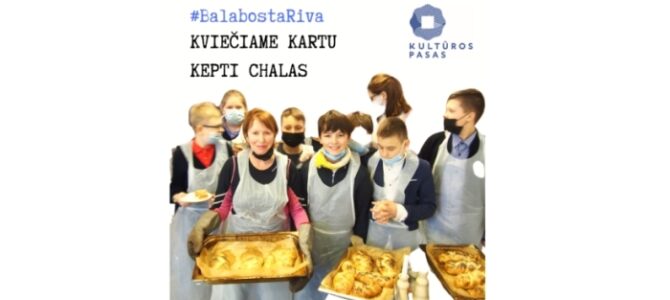
Classes for Making Challa and Other Jewish Foods
The Lithuanian Jewish Community’s Bagel Shop Café is offering students and teachers the opportunity to learn Jewish cooking secrets in classes held every Thursday. The classes are intended for students in grades 5 to 10 and the cost is 12 euros per 60-minute class. For more information see the details in Lithuanian here.
Happy Birthday to Dita Zupavičiene-Šperlingienė
Kaunas ghetto survivor and Holocaust researcher Dita Zupavičiene-Šperlingienė celebrates her 100th birthday March 10. We all wish her a very happy birthday and many more. Mazl tov! Bis 220!
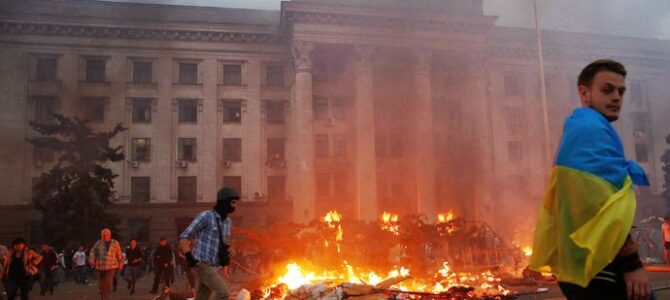
What Lithuanian Ethnic Minority Communities Think about the War in Ukraine: Our Position and Israel’s
Note: Postponed due to illness. A later date for the discussion will be announced.
With the majority of people in Lithuania appearing to support the Ukraine in the current conflict with Russia, Israel’s position doesn’t seem to make sense. At the same time, the majority population of Lithuania is questioning the Lithuania Jewish Community’s position regarding the war.
To address these questions and to discuss the atrocious current events coming out of the war, the #ŽydiškiPašnekesiai discussion club is holding its fifth round entitled “What do the Lithuanian ethnic minority communities think about Russia’s aggression against the Ukraine? The position of the Lithuanian Jewish Community and of Israel.”
The panel discussion will take place at the Bagel Shop Café located at Pylimo street no. 4 in Vilnius on Wednesday, March 16. You are invited to attend in person or watch on facebook. Speakers will include conservative Lithuanian MP Emanuelis Zingeris, cultural historian Violeta Davoliūtė, Lithuanian Jewish Community chairwoman Faina Kukliansky and a surprise guest. Arkadijus Vinokuras will serve as moderator on the panel. The discussion will take place in the Lithuanian language.
For more information and to view live, see the announcement on facebook here.
Note: Postponed due to illness. A later date for the discussion will be announced.
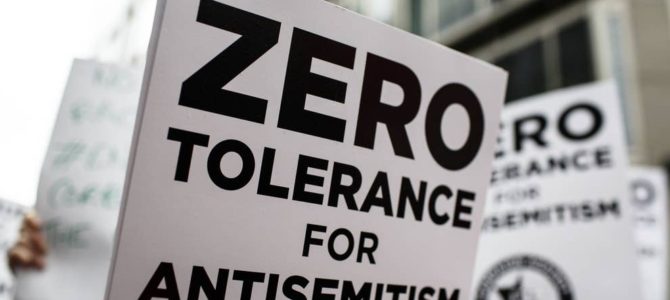
LJC and Partners Begin S4Change Project
The Lithuanian Jewish Community in concert with the Lithuanian Human Rights Institute and the Padėk Pritapti organization are carrying out a project called S4Change which will assess anti-discrimination policies in Lithuania, present comprehensive recommendations and increase resistance among teachers and young people to anti-Semitic, anti-Roma and xenophobic narratives. Besides assessing the state of anti-Semitism and Romophobia and providing recommendations to legislators and national institutions to encourage a strategic response the discrimination and xenophobia, the project will work to increase Roma resilience to hate narratives in society and will hold workshops for Roma children, young people and women. The project will work with teachers and students in the majority population to encourage critical thinking regarding anti-Semitism, Romophobia and xenophobia with teaching workshops and an additional “inconvenient cinema” class for educators to acquire teaching methods and aides. The project will hold an international conference intended to strengthening the state’s strategic response to anti-Semitism, Romophobia and xenophobia and will include a public education campaign.
The full name of the project is “S4Change: Strategy for a Change in Anti-Discrimination Policies in Lithuania” and is financed jointly by the EU’s Citizens, Equality, Rights and Values Program. The project will run from February of 2022 to January of 2024.
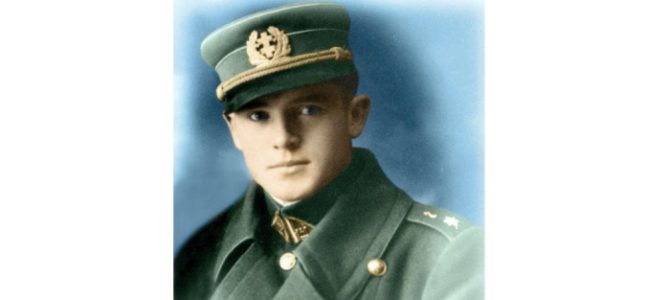
Grant Gochin Brings New Suit against Genocide Center
South African born Los Angeles-based Litvak Grant Gochin is bringing another lawsuit against Lithuania’s Center for the Study of the Genocide and Resistance of Residents of Lithuania, or Genocide Center, over the latter’s mendacious claims Lithuania Nazi collaborator Jonas Noreika actually let an underground anti-Nazi network to rescue Jews. Gochin says Noreika was directly responsible for the murder of his relatives in Šiauliai and calls Genocide Center apologies and equivocations Holocaust denial.

Lithuanian State Radio to Air Documentary on Young Jews Who Left for Israel in 1991
LRT Radio-Documentary: An Unknown Story from 1991
On the last two Sundays in February Lithuanian State Radio listeners will have the opportunity to hear an extraordinary two-part radio documentary called “Roots: The Story of One Journey.” This story involves a group of about 27 children who left Lithuania in 1991 to study in Israel.
“We immediately listened up when we heard from historian Violeta Davoliūtė about children who travelled abroad at those times without their parents,” writer Rimantas Kmita recalled. He and the journalists Vaida Pilibaitytė and Vita Ličytė produced the documentary. “Right away we were unable to understand who and how. Why didn’t their parents travel with them? How did these high school students live there by themselves? Back in those times when there were no mobile telephones or internet [in Lithuania]? Why did they send them there at all? What did they do there, where did they live, how did they adapt, what sort of lives did they have? Our imaginations immediately began painting all sorts of different stories and dramas.”
The radio documentary made in cooperation with the Goethe institute in Vilnius tells the stories of five adolescents from the period: Judita, Laurina, Nira, Rašella and Rananas. It includes recollections by the organizers of the trips, Daumantas Todesas and Ilja Bereznickas. Ilja Bereznickas escorted a group of students to Israel at the time.
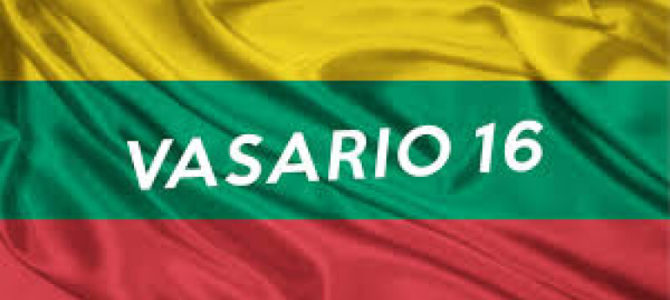
February 16 Greetings
The Lithuanian Council signed a proclamation declaring the reconstitution of the Lithuanian state on February 16, 1918, and disavowing all former dependences on foreign states. To insure the future course and constitution of the state they called for the formation of the constituent Seimas, or parliament, which enshrined the principles of Western parliamentary democracy and freedom of belief, conscience and speech, ethnic equality under law and individual privacy and freedom from the wanton exercise of power. The Lithuanian State Council and the constituent Seimas ushered in the period of national rebirth. This Seimas adopted the national constitution and land reform legislation, and considered and adopted various laws regulating different areas of national life.
Let’s appreciate and take pride in our country.
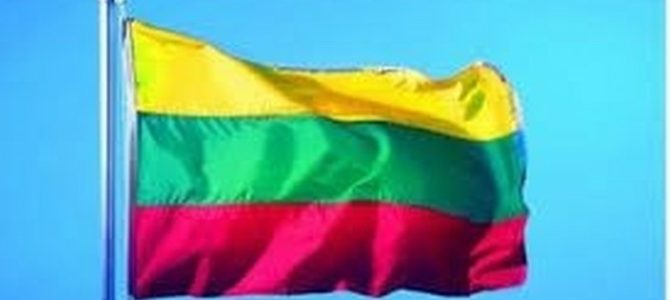
Take Part in the “I Love Lithuania” Campaign
The Šiauliai District Jewish Community invites all the Jewish communities to take part in the “I Love Lithuania” public campaign by taking photographs with the Lithuanian flag on February 16, the pre-World War II Lithuanian Independence Day.
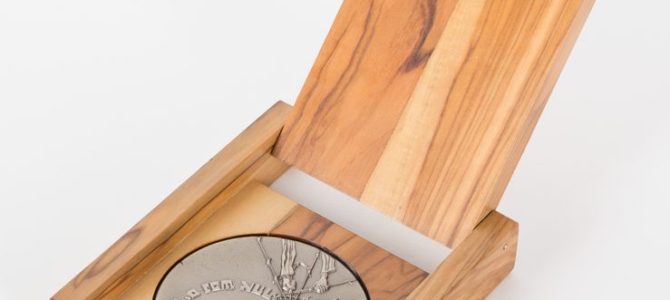
Šiauliai Resident Ida Vileikienė Donates Medals to Museum
Ida Vileikienė [was] scheduled to donate Lithuanian and Yad Vashem medals awarded to her adoptive parents Zofija and Adolfo Staškas to a local museum at a ceremony there on THursday, February 10.
Ida Vileikienė is one of only a handful of surviving city residents who were imprisoned in the Šiauliai ghetto. She was born in the ghetto in the summer of 1942. Following several operations to murder the children of the Šiauliai ghetto, her parents Aaron and Liuba Rozengard sought a safe haven for their daughter and turned her over to Zofija. The Staškas family protected and raised them.
Full story in Lithuanian here.
Photo album on facebook here.
Condolences
The Union of Former Ghetto and Concentration Camp Prisoners mours the passing of Jevgenija Kolman. She was born in 1934 and was a prisoner in the Kaunas ghetto. Deepest condolences are extended to her daughter Diana, son Eduardas and her many friends and relatives. Her loss is our loss.
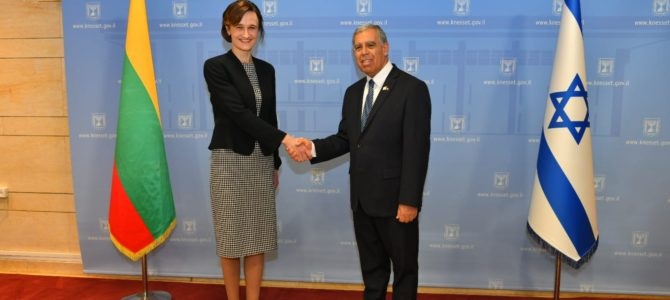
Lithuanian Parliamentary Speaker Visits Israel
Lithuanian speaker of parliament Viktorija Čmilytė-Nielsen toured Yad Vashem and opened an honorary Lithuanian consulate in Netanya Monday. During her visit she met with Israeli president Isaac Herzog and Knesset speaker Mickey Levy.
She plans to visit Palestinian president Mahmud Abbas and prime minister Mohammed Shtayyeh in the occupied territories as well, and to attend a round-table discussion with Palestinian women’s organizations. The trip to Israel and the occupied territories is scheduled from February 6 to 10.
She pledged Lithuanian support to Israel in the international arena.
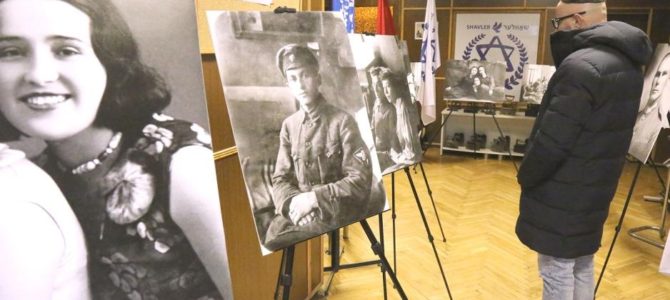
Šiauliai’s First Professional Photographer Reveals Interwar World
The Šiauliai Regional Jewish Community is hosting an exhibit of photographs from their archive by Sošana Zaksaitė, the city’s first professional photographer. Zaksaitė’s photos capture Jewish life in Šiauliai before the Holocaust.
This is the Šiauliai Regional Jewish Community’s second exhibit of Zaksaitė’s photography.
Šiauliai Regional Jewish Community chairman Sania Kerbelis says the current exhibit continues where the last one left off. The Community has a digitized collection of Zaksaitė’s work numbering around 300 photos.
Full story in Lithuanian here.
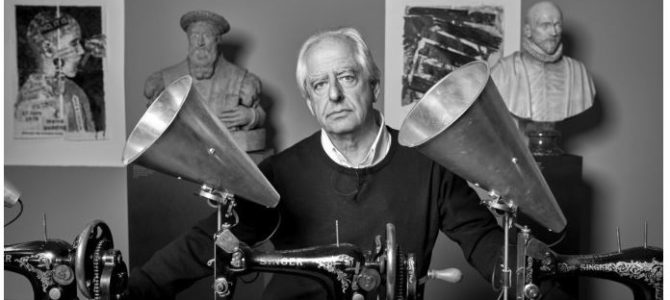
Panevėžys Jewish Community Receives an Extraordinary Guest
The Panevėžys Jewish Community received an unusual guest on January 26: modern art genius from South Africa William Kentridge-Geffen and wife.
The artist was invited to Lithuania to participate in the “Kaunas, Cultural Capital of Europe 2022” program. An exhibition of his work is now showing at the M. K. Čiurlionis National Art Museum.
Kentridge-Geffen is an intellectual and a person who causes others to think and feel. His sources of inspiration range from science to literature and his artistic methods are the most varied, from sketches with coal to painting, textiles, animated films and opera productions, demonstrating his broad education and broad field of interests.
William Kentridge-Geffen said Lithuania made a deep impression on him because of its natural beauty and architectural legacy. He said with obvious emotion:

Happy Birthday to Aleksandras Rutenbergas
Aleksandras Rutenbergas celebrated his 75th birthday Monday.
We wish our always active member a very happy birthday, good health and good times. Aleksandras, your contribution to maintaining Jewish heritage is great. You helped build the Tolerance Center of the Vilna Gaon Museum at the site of the former theater there. You were always there in the middle when there was work to be done. You introduced Europe to Litvak heritage, organizing two exhibitions of Vilnius ghetto posters in Padua and Strasbourg.
We would like to express our great respect for your good work and your tolerance.
Mazl tov. Bis 120!
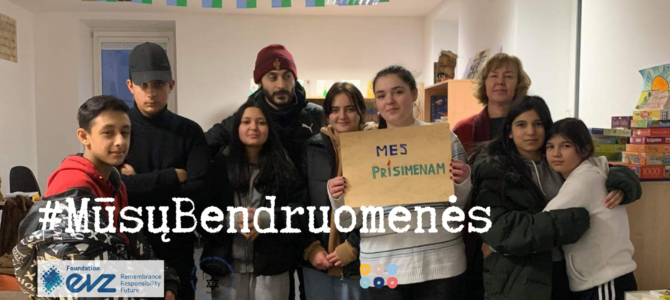
Project “Young Leaders of the Jewish and Roma Communities for the Preservation of Historical Memory and Justice”
The year 2021 reminded us all of the suffering and misfortune the people of Lithuania had to live through in the 20th century, finding themselves at the intersection of the interests of the world’s great powers. There were commemorations, conferences and exhibitions throughout Lithuania. Even so, we haven’t done all our homework to insure the preservation of historical memory and teaching the younger generation a deeper sense of history don’t merely become annual events, but an inalienable part of national politics where all institutions work towards a common goal in a coordinated way, so that the combined resources of the state and society work together according to a clear strategy.
The Lithuanian Jewish Community and the Roma Social Center are beginning the implementation of a project called Young Leaders of the Jewish and Roma Communities for the Preservation of Historical Memory and Justice organized by Germany’s EVZ Foundation aimed at teaching the public the importance of the history of the Roma and Jewish communities with the goal of including and engaging the younger generation of both communities.
Do members of these communities feel safe living in their own country?
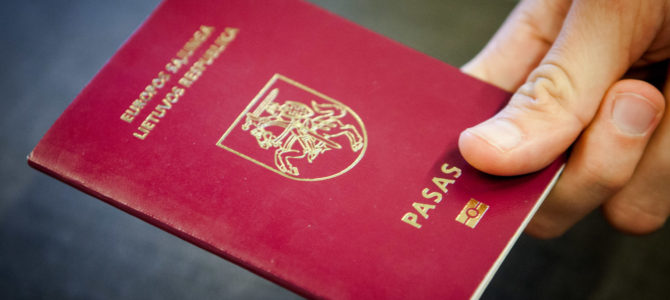
Parliamentary Amendments to Law on Citizenship to Allow for Restoring Lost Ties
The Lithuanian Jewish Community welcomes the decision by the Lithuanian parliament to approve amendments to the Law on Citizenship correcting long standing gaps (since 2017) in legal regulations and creating opportunities for closer ties between the Litvak communities in Lithuania and the world.
“The Lithuanian state often underlines its connection with notable Litvaks and their descendants, takes pride in their achievements and invites them to visit Lithuania. At the same time, it has to be stated that for many years these same people had to have iron constitutions when attempting to restore Lithuanian citizenship. I have called consistently on all Lithuanian institutions to solve this problem and I am pleased to say that today we can see the result of that joint effort,” Lithuanian Jewish Community chairwoman, attorney Faina Kukliansky said.
These amendments broaden the circle of people with the right to restore Lithuanian citizenship. The procedure until now demanded those seeking to restore their Lithuanian citizenship prove that their ancestor who had Lithuanian citizenship (or if they themselves had it) was a citizen on April 15, 1940. This requirement demanded exhaustive research of historical facts which demonstrated and proved which citizenship documents the person or his or her ancestor had in their possession until April 15, 1940 (exclusively), and at what moment and on what basis these people acquired the citizenship of another country. Moreover, there are no institutions which issue certificates showing that a person was a Lithuanian citizen on April 15, 1940. With the adoption of these amendments, now one only has to prove they were a Lithuanian citizen at any time, and that they didn’t lose that citizenship at that time in a manner prescribed by law. Implementation of these amended regulations means the bureaucracy will be reduced for those seeking to restore their Lithuanian citizenship and opportunities will be insured for members of the Litvak community around the world to restore their connection with Lithuania.
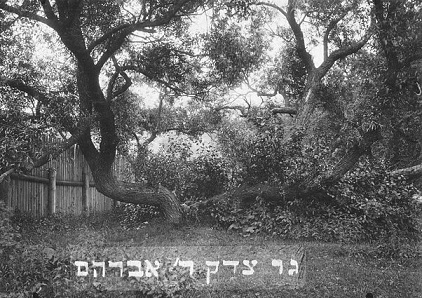
Committee for the Preservation of Jewish Cemeteries in Europe on Šnipiškės Cemetery
PRESS RELEASE by the Committee for the Protection of Jewish Cemeteries in Europe
(CPJCE)
January 18, 2022
The Lithuanian Government reaffirms its commitment to follow CPJCE guidelines on future plans of the Sports Palace Building situated in the Snipiskes Jewish cemetery in Vilnius.
The future function of the existing Sports Palace Building was discussed at a meeting held in Vilnius on November 25, 2021, between first deputy chancellor Mr. Rolandas Krisciunas, accompanied by his working team, and Mrs. Faina Kukliansky, chairwoman of the Lithuanian Jewish Community, together with Rabbi H. Gluck OBE and Rabbi Y. Schlesinger representing the CPJCE.
Rabbi Gluck pointed out that regardless what the future plans hold, the Government must respect the agreements signed between the Government and the CPJCE in 2009 and 2015 and therefore no movement of soil is allowed in the entire cemetery area, and the Government should continue to work hand-in-hand with CPJCE to ensure the safeguarding of the cemetery and other cemeteries in the framework of the halachic guidelines.
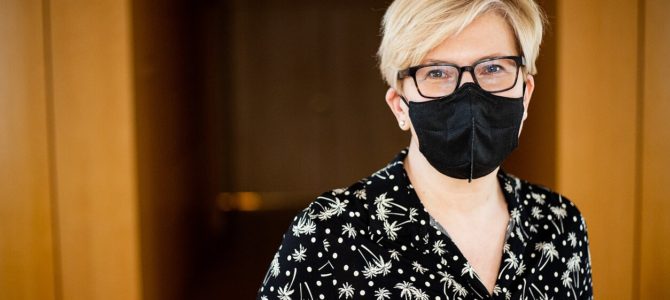
Lithuanian Prime Minister Talks about Jewish Legacy in Radio Interview
LRT.lt: This interview is taking place on January 27, which is International Day of Commemoration in Memory of the Victims of the Holocaust. This topic is important to you, you took part in the Road of Memory procession several times if I recall correctly. The topic of the Holocaust is sparking a great many discussions in Lithuania and it’s clear we haven’t answered many questions. Have we, Lithuania, as a state, bearing in mind the entire history, have we commemorated sufficiently the victims and rescuers?
Lithuanian prime minister Ingrida Šimonytė: I think we haven’t fully realized over all what Jews mean in Lithuanian history. … The very scope, the understanding that 200,000 people, that the residents of the towns were in the majority the large Jewish communities which simply disappeared, someone took and wiped 200,000 people out of the picture. I came to that realization rather late.
…
Regarding the Palace of Sports, it has its own specific features because it is a building which is [protected] cultural heritage, nothing new may be built there, it can only be commemorated and put to public use. I won’t hide that there are people who say we should let this building fall into ruin because there are so many off-limit areas, so let the building fall down of its own accord. This is a difficult decision, to wait for the building to fall down in the middle of the city. I don’t think we should do this, but I also don’t think some other kind of application would meet with great support.

